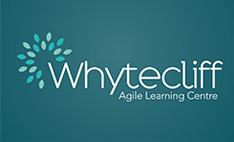Dyscalculia is a learning impairment and difficulty in acquiring mathematical competencies. Dyscalculia can refer to a broad range of impairments with varying difficulties affecting each person differently in school and throughout their life. Learning specialists suggest that many teenagers and adults have trouble moving on to more advanced math applications as language processing difficulties can make it hard for a person to grasp the vocabulary of math. In addition, challenges with multi-step procedures make it hard for them to visualize patterns, see different parts of a math problem, or clearly see critical information.
How Whytecliff Can Help Kids With Dyscalculia
Whytecliff offers the BC Ministry of Education accredited curriculum leading to a British Columbia Certificate of Graduation. Whytecliff also incorporates the new BC Curriculum’s intellectual, personal, and social-emotional proficiencies, with a special emphasis on youth development as well as positive mental health and wellness.
At Whytecliff we realize that every child is unique and that each child’s unique gifts, talents and interests can be engaged to motivate learning. For children with dyscalculia math concepts can seem especially abstract and difficult to grasp. This is why we seek to involve children in interesting real-life projects involving math (such as the physics of soccer). Using physical cues or objects brings math into experiential learning, where math can be seen as a practical tool versus an abstract idea. Also, talking through a math problem or writing about a problem can create fresh ways to see that problem. Likewise, separating a problem into its component parts allows us to work together to see areas where a student may be missing prior knowledge which they may not have retained. We also employ online assistive lessons and technologies appropriate to the age and developmental level of each child (which are matched to their particular learning style).
Central to our approach is a commitment to helping each child achieve success and an awareness that every child is ready to learn one more thing; good teaching involves “just in time” learning experiences that provide the right challenge and knowledge at the right time. In practical terms, this means starting children in subjects and areas that reflect their strengths and letting them choose when they’re ready to tackle areas where they have challenges. By empowering children with a sense of control and latitude over the degree of challenge they’re ready to tackle, it decreases stress and maximizes self-efficacy and personal confidence.
Great relationships between our educators and students allow collaboration in learning. We have found it helpful at times for a student who has difficulties with math to work with a teacher who has previously had similar difficulties (and can better relate to the child’s experience). It’s an empathetic “Let’s figure this out together” approach which we find resonates best with children.
